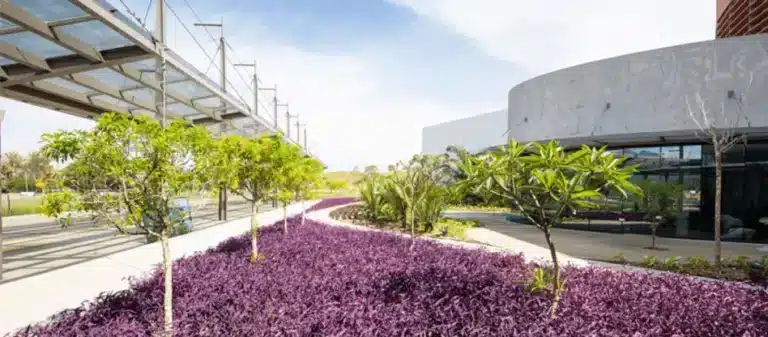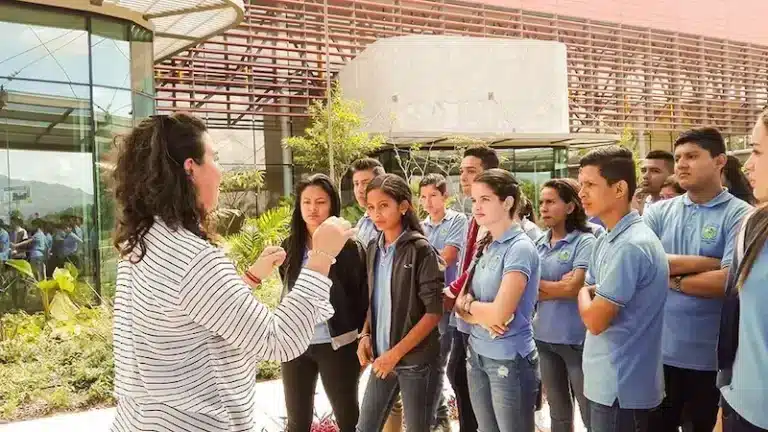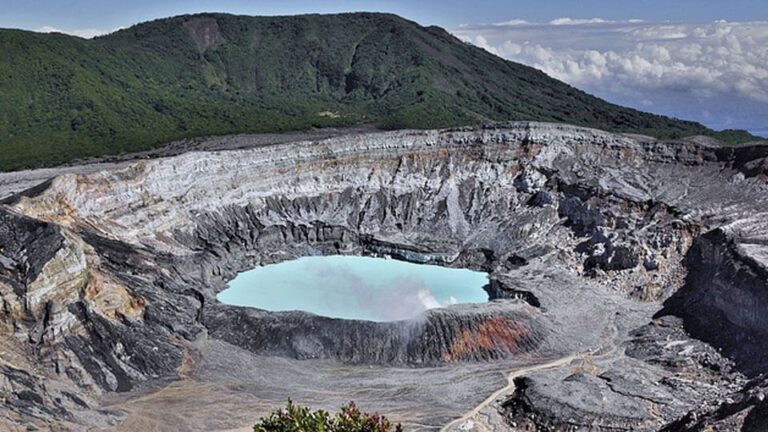Today, decarbonization has become an essential goal for various industries, especially in event organization. Events, from conferences to exhibitions, have a significant environmental impact due to the substantial greenhouse gas (GHG) emissions associated with energy consumption, attendee and supplier transportation, and waste generation. Adopting zero-carbon strategies not only contributes to reducing these emissions but also responds to the growing demand from attendees and clients who seek sustainable and socially responsible events. This article aims to provide a practical guide for event organizers who wish to plan zero-carbon events, using the pioneering CarbonClear Events By Heroica methodology implemented at the CCCR as a reference.
Decarbonization in event organization involves a comprehensive effort to reduce and, as much as possible, eliminate carbon emissions generated in all phases of the event. This process includes strategies for mitigating and offsetting emissions, ensuring a balance that allows human activities, in this case, events, to be carried out without adding carbon emissions to the environment. The CarbonClear Events By Heroica methodology, specifically developed for the Costa Rica Convention Center, seeks to ensure that events operated within its framework can achieve carbon neutrality, promoting a culture of sustainability that influences all stakeholders: organizers, attendees, suppliers, and local communities.
Sustainable innovation turns planning into an act of environmental awareness.
Planning Strategies to Achieve a Zero-Carbon Event
1. Venue Selection and Infrastructure Efficiency The first step towards a zero-carbon event is to choose a venue with infrastructure designed for sustainability. This includes facilities that use renewable energy, such as solar panels, and energy-efficient lighting and ventilation systems. For example, the CCCR is a pioneer in incorporating low-impact environmental technologies, such as LED lighting and smart energy control systems that optimize electricity consumption and reduce the event’s carbon footprint.
2. Sustainable Transportation and Mobility Transportation represents one of the largest contributors to an event’s emissions. To minimize impact in this area, measures such as promoting collective transportation, providing bike routes, and encouraging electric vehicle use among attendees and suppliers should be implemented. The CarbonClear Events methodology considers it crucial for organizers to incentivize sustainable mobility by offering shared transport options or partnering with public transportation and electric vehicle services.
3. Waste Management and Recycling Reducing, reusing, and recycling are fundamental pillars for minimizing waste impact at an event. Organizers should establish separate waste collection points, ensure material recycling, and prioritize the use of biodegradable or reusable materials. CarbonClear Events By Heroica includes composting and recycling programs to ensure proper disposal of waste generated at each event. Additionally, it is essential to conduct awareness campaigns for attendees, motivating them to help reduce waste and properly separate it.
4. Renewable Energy and Energy Efficiency Events should focus on maximizing renewable energy use and minimizing energy consumption through the implementation of efficient technologies. The adoption of solar or wind energy, when possible, and the use of LED lighting in exhibition areas are essential steps. At the CCCR, the CarbonClear Events methodology has integrated renewable energy use, such as installing solar panels, which generate a significant portion of the energy used in events. This measure helps reduce electricity consumption from non-renewable sources, a key aspect of event decarbonization.
5. Reducing Printed Materials and Digitization Zero-carbon event planning should include a policy to reduce printed materials. Opting for digital platforms, such as apps for event management and digital programs, significantly reduces paper consumption and other resources. CarbonClear Events By Heroica promotes the use of digital media and electronic devices, which, in addition to being an eco-friendly option, facilitate accessibility and offer a more interactive experience for attendees.
6. Selection of Sustainable Suppliers The commitment of suppliers to sustainability is crucial to achieving a zero-carbon event. It is important to select suppliers who have sustainability certifications and are aligned with decarbonization goals. This selection ensures that the products and services contracted, from catering to stage setups, meet high environmental standards. CarbonClear Events works with certified local suppliers who meet low environmental impact criteria, strengthening the local economy and minimizing emissions associated with product transportation.
7. Environmental Communication and Awareness The decarbonization of an event also depends on the awareness and active participation of attendees and collaborators. It is essential to communicate sustainability efforts through campaigns before and during the event, encouraging participants to help reduce their own carbon footprint. At the CCCR, under CarbonClear Events, communication strategies include educational signage, social media campaigns, and training programs for staff, ensuring that all participants understand and contribute to the event’s sustainability goals.
A green event inspires, informs, and leaves a lasting positive impact.
Implementation and Monitoring of Results
For an event to truly be zero-carbon, it is necessary to monitor and evaluate the measures implemented. This involves keeping records of consumption and carbon emission data, analyzing their impact, and making adjustments as needed. CarbonClear Events By Heroica establishes an Integrated Measurement System (SIM) that allows for thorough tracking of energy consumption, transportation, waste, and other key indicators. This tool is essential for evaluating the success of the strategies implemented and facilitates identifying areas for improvement for future events.
Decarbonization in the event industry is an essential commitment in a context where sustainability is no longer just an option but an urgent necessity. Adopting zero-carbon strategies allows event organizers not only to mitigate environmental impact but also to position themselves as leaders in a sector increasingly aware of its responsibility to the planet. The CarbonClear Events By Heroica methodology represents an exemplary model of how a convention center can operate 100% of its events under sustainability principles, achieving carbon neutrality and offering a memorable and eco-responsible experience to its clients. For event organizers, this guide offers clear and practical guidance, emphasizing that, through careful planning and a commitment to sustainability, it is possible to hold successful events that leave a positive, lasting mark on the environment and the community.
Planning Coordinator





